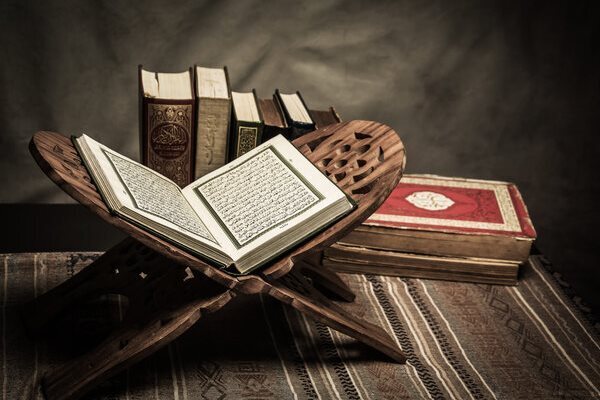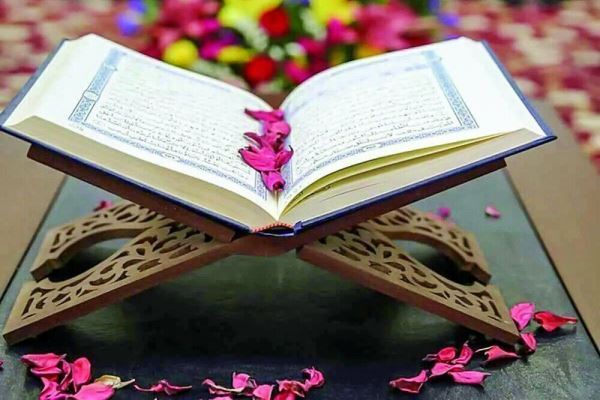Orientalists Who Acknowledged Greatness of Quran

Egyptian scholar Nassir Ahmed Mohamed Sana in an article investigated some of the fair remarks about the Quran by Western scholars and orientalists. Excerpts from his article are as follows:
It is no wonder that in the past and in the present, various individuals and groups have tried to defile the Holy Quran by burning, desecrating, distorting, belittling and casting doubt on this divine book.
The Quran has been a book of concern to Westerners from the first day, and it will always be so.
Régis Blachère, a French orientalist, said, “We have rarely found among the Eastern religious texts a book like the Quran whose reading has so disturbed our thoughts.”
Nonetheless, there are fair and balanced statements by orientalists about Islam’s Holy Book.
An orientalist named Chibs says, “Some scholars believe that the Quran is the word of [Muhammad], and this is a big mistake. Verily, this (Quran) is the Word of the Most Beneficent (Allah) sent down to His Messenger [Muhammad (PBUH)]. Muhammad was an illiterate individual at that time, and he could not bring us words that would dazzle the minds of the wise and lead people from darkness to light. You may be surprised that a European man would admit this, but don’t be surprised! Because I studied the Quran, and I found in it sublime concepts, solid organization, clarity and articulation that I had never seen before. One sentence is enough to replace the Quran with all the books.”
Father Robert Caspar also says, “The West has never properly understood Islam and has never even tried to understand it. Even a few prominent Christians who were close to Islam, such as John of Damascus, Theodore of Abukara or Paul of Sidon and so on, were unable to grasp the essence and greatness of Islam. Perhaps this is largely because the Christian West, for centuries, had been content to distort the face of Islam and its prophet without bothering to read the book. The first literal translation of the Quran was not written until the 12th century, five centuries after the rise of Islam. Moreover, most translations of the Quran had no other goal than to condemn most of the Quran, and these condemnations continued for centuries.”
Read More:
In her book “Defending Islam”, Laura Vashia Vaghelieri writes, “How could this miraculous book have been written by [Muhammad], an illiterate Arab? Although Islam’s enemies were urged to bring a book like the Quran or at least a chapter like its chapters, they failed. Although there were many eloquent masters in the Arab world, no one could come up with anything like the Quran. They fought the Prophet with weapons, but they could not match the magnificence of the Quran.”
German thinker Hubert Herkomer also says. “The Crusaders seem to have refused to acknowledge the fact that they were facing a unifying religion close to their own. The Crusaders had very limited knowledge of the Quran. It is true that the first Latin translation of the Quran was published in 1143 AD, but Europeans eagerly awaited its use in an ongoing attack on Islam. There is no doubt that the precise translation of the Quranic concepts clarified many issues for the Latin West, yet at that time no one thought of reaching a minimum level of agreement, understanding and closeness with Islam. When a Swiss man named Johann Oberin printed a Latin translation of the Quran in 1542, the city of Basel quickly banned its publication, and the ban was not lifted until after the strong intervention of Martin Luther, the founder of the Protestant Church…. Luther, a Protestant, saw the Quran, which had been translated into Latin during the various wars with the Ottoman Empire, as the ideal means of arming the desperate hearts of Christians and lifting their spirits.”
Maurice Bocquet, a French physician, was famous for his scientific views and his neutrality toward the divine books. He had drawn many conclusions from his studies, which he included in his famous book titled “The Quran, the Torah, the Bible and Science” or “Studies of the Holy Scriptures in the Light of Modern Science”. He writes, “How could a man who was illiterate at the beginning of his life and then, despite his illiteracy, became the absolute master of Arabic literature, be able to express scientific truths that no one at that time was able to express, without the slightest error in his statements?”

Deborah Porter, a former American journalist who converted to Islam in the 1980s, says, “How did Muhammad, an illiterate man raised in the Age of Ignorance, come to know the miracles of existence described in the Quran, miracles that modern science seeks to discover to this day? Verily, these are the words of Allah, the Most High.”
Montgomery Watt (1909-2006), in his recent book “Islam and Christianity in the Modern World”, emphasizes that the Quran is not the words of Muhammad (PBUH) or the product of his thought, but it is the word of God, which He has spoken unto him. “Therefore, Muhammad is but a messenger chosen by God to deliver this message first to the people of Mecca and then to all the Arabs. This is a clear Arabic Quran. There are references in the Quran that are addressed to all mankind.”
Read More:
This English orientalist who has spent over a third of a century studying the Quran and Islam and is an Anglican priest and the son of a priest, says the Quran was recorded immediately after its revelation.
In several places in his book, he emphasizes the accuracy of the collection, editing and documentation of the Quran immediately after its revelation and its revelation under the supervision of the Prophet of Islam.
Lady Evelyn Cobold, an English aristocrat who converted to Islam, writes in her book titled “The Visit to Mecca” or “The Quest for God”, “I have mentioned in my book what the Quran says about the creation of the universe and how God Almighty created a pair of every kind, and how new science, after extensive research and study by many generations, has supported this theory.”
In conclusion, it should be said that orientalists have studied, researched and analyzed the Quran and have been interested in translating it into their own languages.
Amidst the various positions and theories that are hidden under the guise of superiority, racism and antagonism, there is an urgent need to clarify fair and unbiased testimonies from their sages, testimonies that enrich “fair knowledge”, “mutual cultural acceptance”, “correct stereotypical mental images” and create bridges of familiarity, coexistence and cooperation, so that East and West come together.
There is also an urgent need to provide accurate and correct translations of the concepts of the Quran in all the living languages of the world.
4280327



